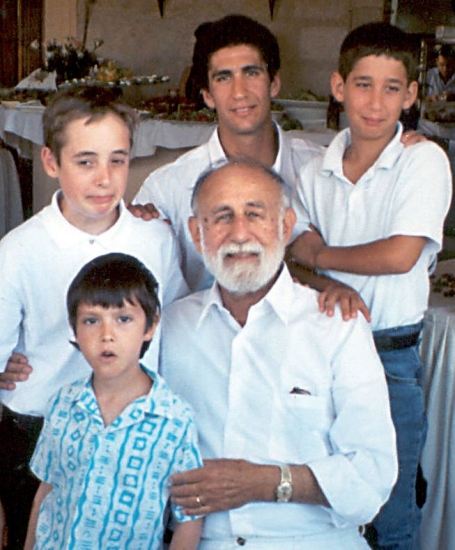
David Weiss with his grandchildren
Let me tell you about my David and you'll understand why I feel grateful for knowing him and for having shared my life with him.
From the moment I met this fascinating, free thinking man, we became a team and though two separate individuals, we enriched each other by being together. I watched David as he kept growing intellectually and as his beliefs and ideas kept evolving. He never stood still and he was never afraid to change his mind.
He came to live in Israel even though he was in favor of a robust diaspora because he saw Israel as the creative center of the Jewish people and the prime guarantor and maintainer of Jewish teachings. One of the highest Jewish values for him was Tikkun Olam (the betterment of the world). He believed we must bear the responsibility of being Or laGoyim (a light unto the nations) and must act continuously to improve the human condition.
He wore many hats: An ordained conservative rabbi, he was the first rabbi of the first conservative congregation of Tel Aviv – Kehilat Sinai. He was also a clinical psychologist and a Ph.D. in family and marital therapy.
David's father, an ardent Zionist and modern for his time, was a European trained orthodox rabbi. Like his father, David was keenly aware that most of their large family had been slaughtered in Auschwitz.
After graduation from the American High School David enrolled in Franklin and Marshal College where he received his BA at 18. The youngest F&M graduate ever, he was also awarded departmental honors in Economics and the Kieston Prize in Political Science.
Drafted following graduation, he served in the US Air Force.
After his discharge he was tutored by the late Rabbi Solomon Rose, a conservative rabbi. With the excitement attendant at the birth of Israel, David decided to enroll in the Jewish Theological Seminary and was ordained in 1953 with an MHL. As a student at the Seminary he served as a national officer of the Intercollegiate Zionist Federation (IZFA) and was also elected chairman of the National Jewish Youth Conference, the overall body of organized Jewish youth in America. In recognition of his years of service, the Jewish Theological Seminary awarded him a Doctor of Divinity, honoris causa, in 1980.
In 1970, after having served in pulpits and in an administrative position in the USA, David came on aliyah. He enjoyed a few short years during which Israel was relatively prosperous and people looked to the future with optimism and vitality. Then came the trauma of the Yom Kippur war and he decided he could better meet the personal needs of people as a mental health professional.
We returned to the States and settled in Philadelphia where, while serving in a pulpit and teaching, he earned an advanced degree (MS) in Clinical Psychology from the Hahnemann Medical College and Hospital. That he followed with a Ph.D. in Family and Marital Therapy from the California Graduate School of Family and Marital Therapy. Shortly thereafter he was licensed by the State of California and became a member of the California Association of Marital and Family Therapists.
We then returned home to Israel where he was licensed as a psychologist and began to practice.
David believed Israel must forever be a Jewish state, the state of the Jewish people and a democracy in which there is a clear separation between religion and government.
Over the years he published articles, essays and reviews in the fields of psychology and religion, all part of his literary and scholastic legacy.
Of all these attributes, foremost for me was his always being a mensch, always a caring and sensitive person. Life with him was an exciting, ongoing challenge. Opinionated and independent as I was, he encouraged me and cheered me on to explore and engage in my own individual endeavors.
We shared many values and enjoyed many of the same interests: classical music and symphonic concerts and especially Mahler's symphonies; attending dance performances (and in years past dancing frequently and energetically together); reading; indulging in vigorous debates and arguing with each other; traveling; visiting art museums; playing bridge.
Though physically ill for quite a few years, his mind remained active and clear to the end. He was not afraid of dying and he knew the end was near. He loved life and lived it vigorously but he was prepared to face the inevitable as a natural consequence of living. That morning, in the convalescent hospital, he was feeling rather well: he looked forward to my coming to fetch him back to our home in Modiin which he loved, a home we had moved to after his retirement. Of all the many places in which we had lived, that’s where he felt most at home. He enjoyed the house, the garden and the breezeway where he liked to read and to listen to the Voice of Music on the radio.
That morning he died – suddenly and peacefully. Though I miss him everywhere and every day, I give thanks for the times we have had together and for the privilege of sharing a large part of my life with him.
I am sure that, like me, those who have known him feel grateful that he was.
-1372404808.jpg) Freda Keet at ESRA Tel Aviv
Freda Keet at ESRA Tel Aviv-1372524003.jpg) the key question
the key question -1372523803.jpg) Volunteering this year- English for Schools
Volunteering this year- English for Schools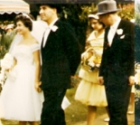 Bridesmaid recalls a very special day 59 years ago
Bridesmaid recalls a very special day 59 years ago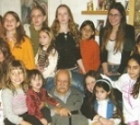 Harry Berman
Harry Berman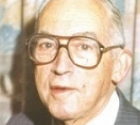 Sam Levin
Sam Levin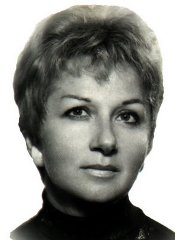 Sivanne Weiss
Sivanne Weiss